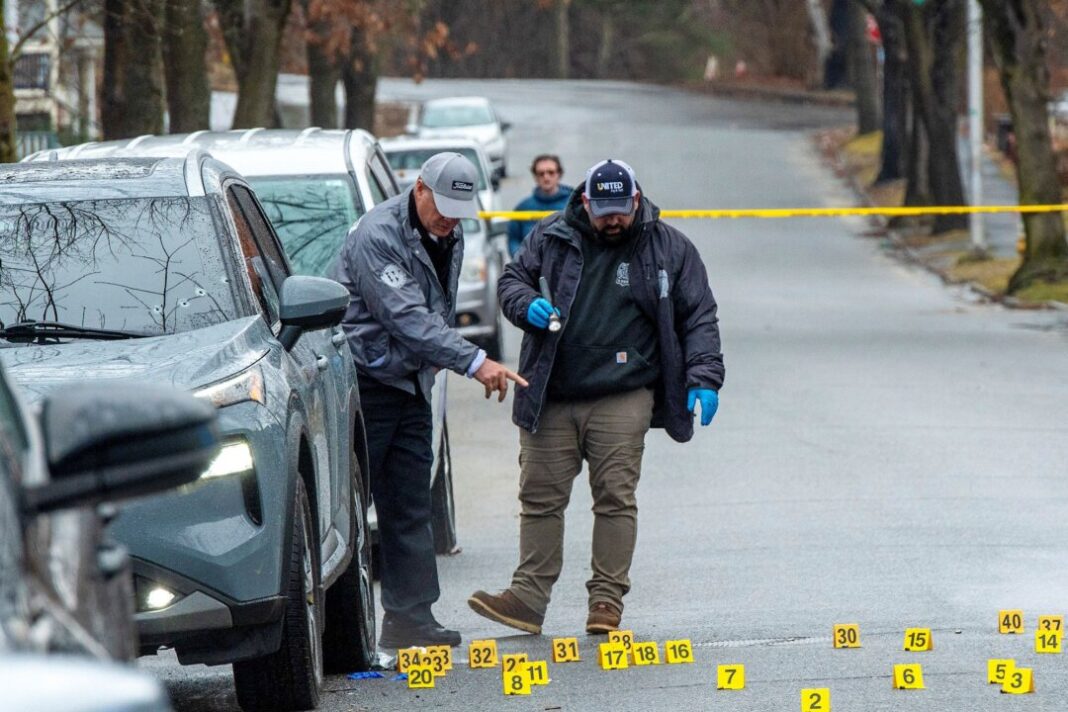Federal investigators said they found evidence of excessive driving, sexual misconduct and ‘disproportionate policing’ by race.
The US Department of Justice (DOJ) accused the Worcester, Massachusetts, police branch of overreach, sexual misconduct and “disparate policing of black and Hispanic people” in a 43-page file unsealed on December 9.
The file says a two-year DOJ investigation found that Worcester police “inappropriately deployed Tasers, used police dogs, and hit people in the head.”
The report also alleges that Worcester officers routinely escalate violence levels unnecessarily in minor incidents, including encounters with people with mental health issues or in disaster situations.
Unnamed officials are accused of sexual misconduct as well as coercing the girls into sexual intercourse by tricking, defrauding or blackmailing them for prison fees.
DOJ prosecutors said nearly all of Worcester’s law enforcement officers served honorably. However, recapping the file in a webinar on Monday night, he said his investigation revealed problems.
“Our extensive investigation revealed that the Worcester Police Department used excessive force and undercover police officers to arrest women suspected of being involved in the commercial sex trade,” said Kristen Clark, Acting Legal Professional Basic, Civil Rights Division of the Justice Department. Allows you to engage in sexual contact with others.” Wrote in Monday press drop.
The file alleges a lack of management, responsibility, importance knowledge and coaching for the problems defined.
“WPD’s inadequate policies, training, supervision, investigations, and discipline led to these unlawful patterns or practices,” the filing said.
While File declined to blame racism for the problems, a US lawyer said during the webinar that race appeared to be a factor in some cases.
The file notes that Worcester is 51.8% white, 12.8% undocumented, 24.6% Hispanic, 6.8% Asian, and 0.4% Native American. It also says blacks and Hispanics are much more likely to be arrested during traffic stops and are also more likely to be arrested for non-violent misdemeanors.
“The analysis showed that black individuals are at least two times more likely to be arrested for minor offenses than white individuals, while Hispanic individuals are 1.84 to 2.04 times more likely to be arrested than white individuals ,” Greg Dorchak, a labor American legal professional, was cited throughout the webinar.
Dorchak said Worcester police do not collect demographic data on traffic stops, arrests and alternative interactions, so it is impossible to determine how much running played a role in the findings. He said better data collection was one of the key recommendations listed in the file.
Worcester city and police branch officials did not respond to requests for comment via e-newsletter. A Boston-based attorney appointed as outside counsel for the city also did not respond to The Epoch Times’ request for an interview.
The DOJ began its investigation on November 15, 2022. It was prosecuted through the Special Litigation Division of the Civil Rights Division and Civil Rights Unit of the Office of the U.S. Attorney for the District of Massachusetts. Press Drop when you say file.
Investigators said they accessed numerous incident reports and thousands of documents, including branch policies, training materials, police reports, films and internal affairs files. Additionally they also conducted statistical analysis of WPD data covering January 2017 to November 2022.
In its filing, the DOJ notes the changes made through the city and WPD and lists alternative measures it considers important to manage the findings. Reforms cited include a coverage overview committee to receive community comments on policing and the adoption of body-worn cameras for officers across the department in February 2023.
Along with the value of high data collection and drive training, the file mentions that Worcester Police must create policies that hold criminal cops accountable, make it more simple to book rogue cops, make civil court cases significant. Strip away the forms, and examine them thoroughly.
Joshua Levy, U.S. attorney for the District of Massachusetts, said the file laid the groundwork for reforming the branch. He called on the community, regulation enforcement officers, social provider businesses, and others to make their workplace and DOJ aware of their views.
“We are ready to build on these foundations,” Levy said Monday night.


